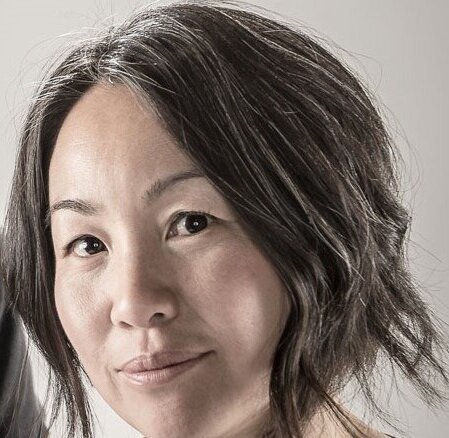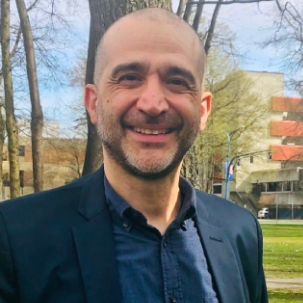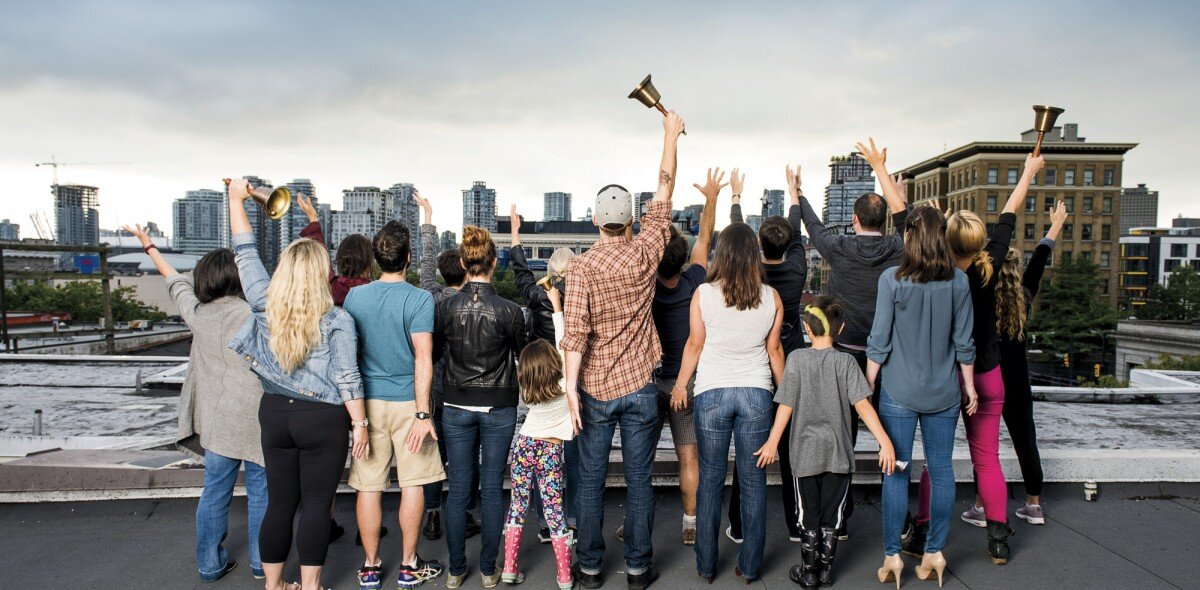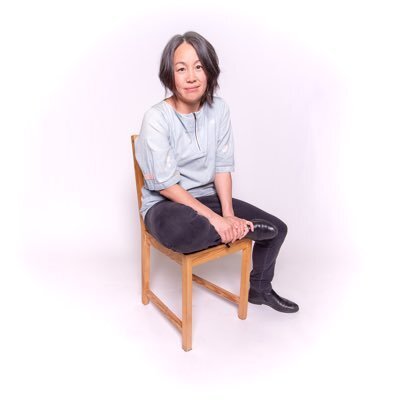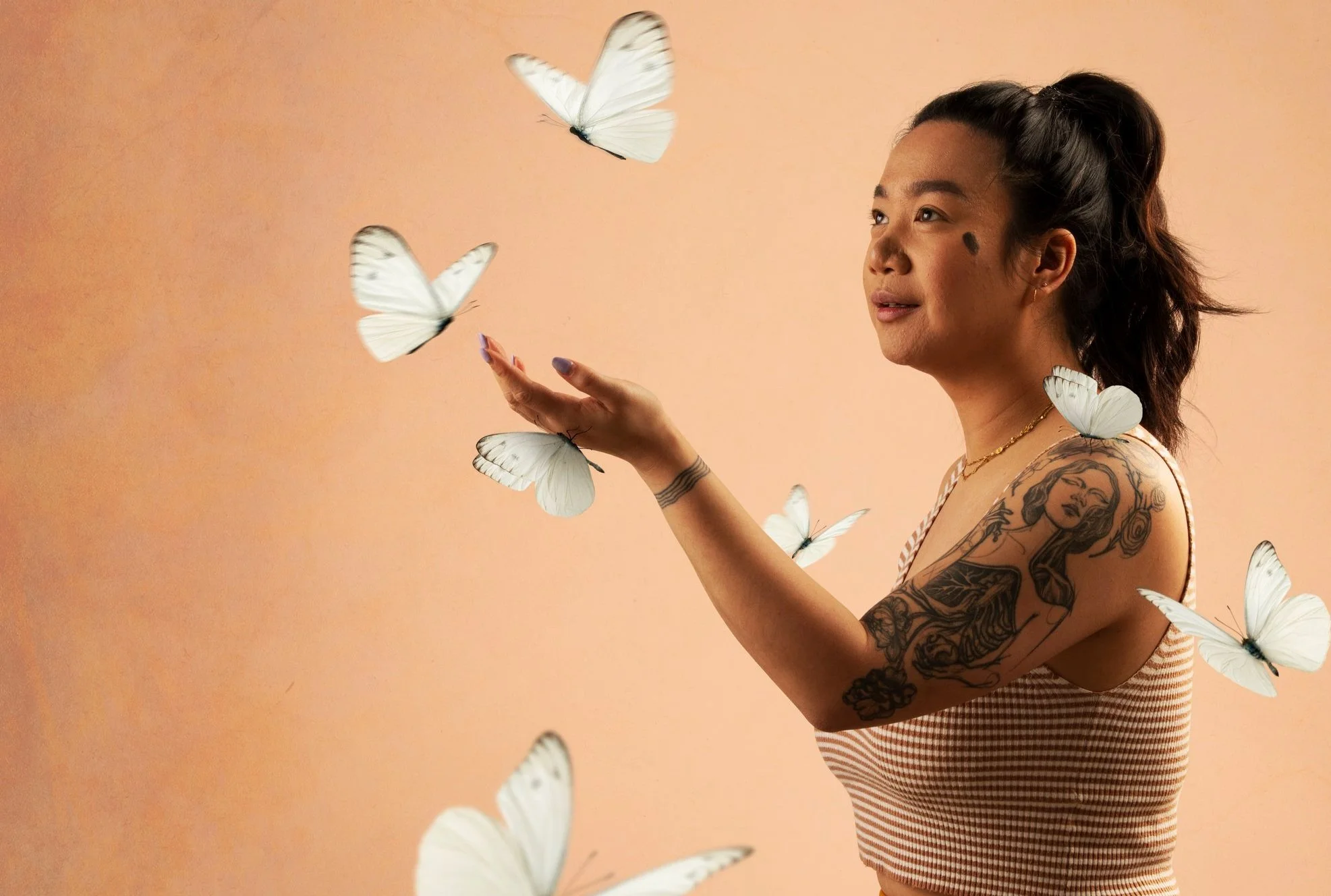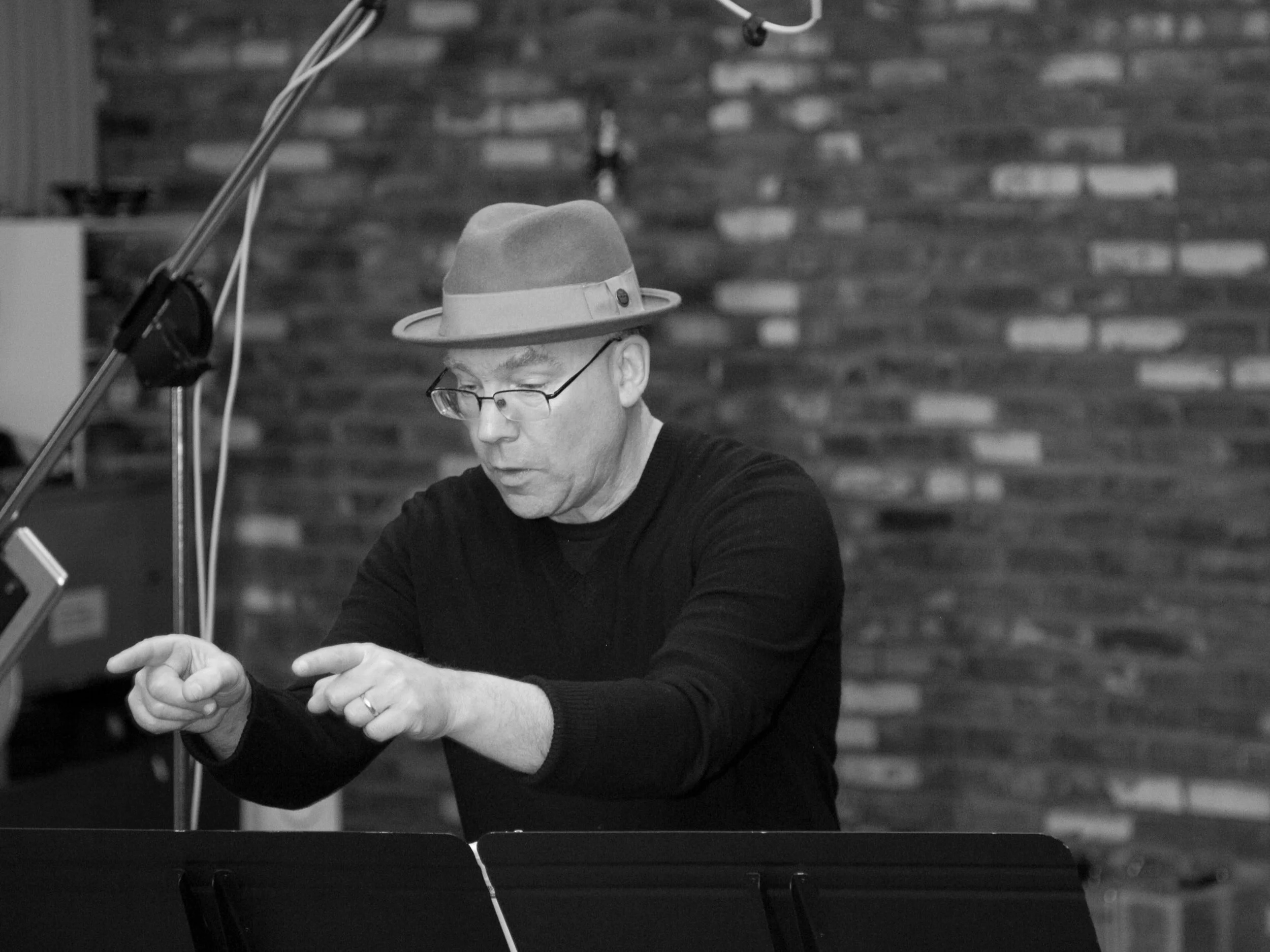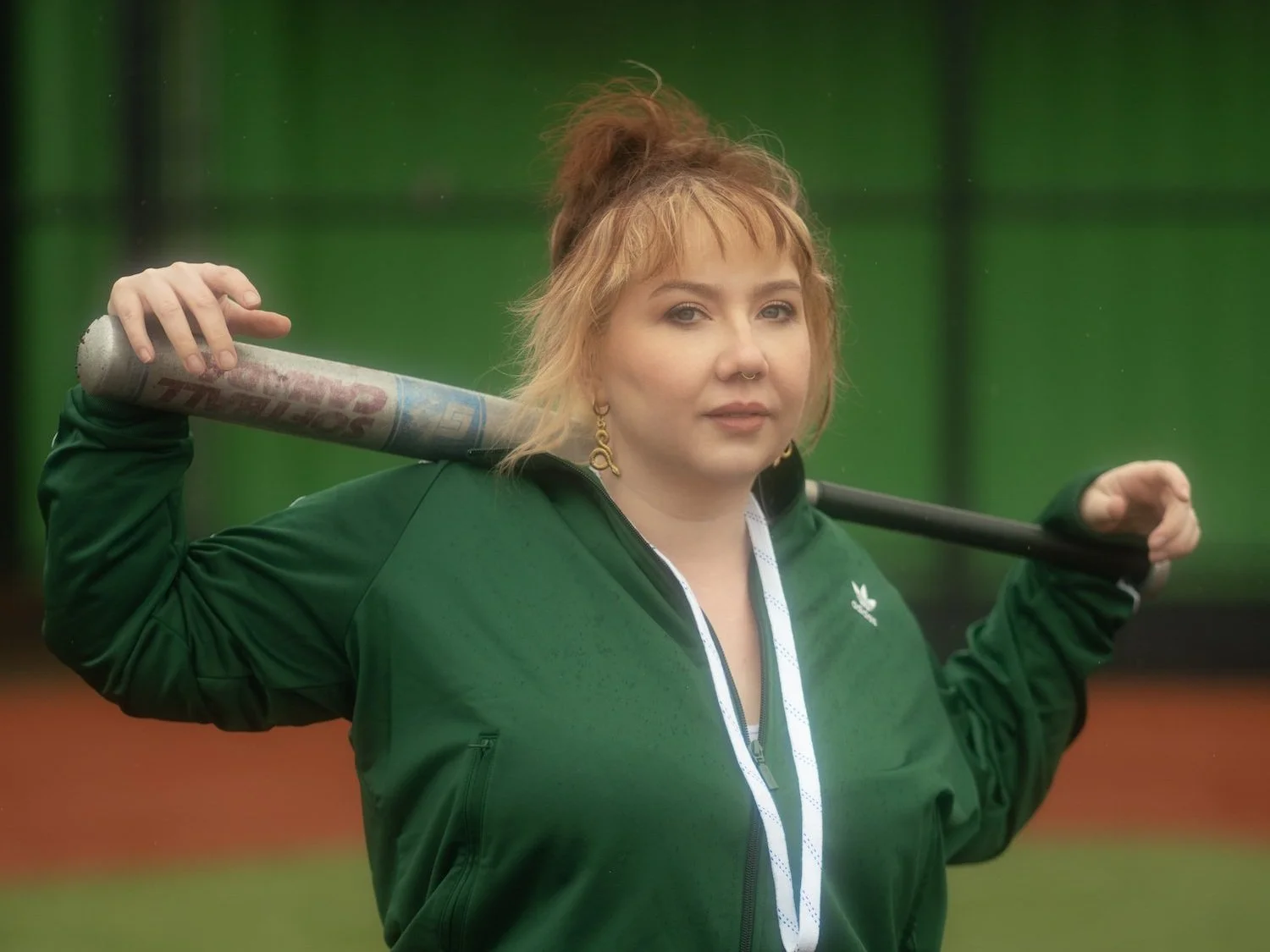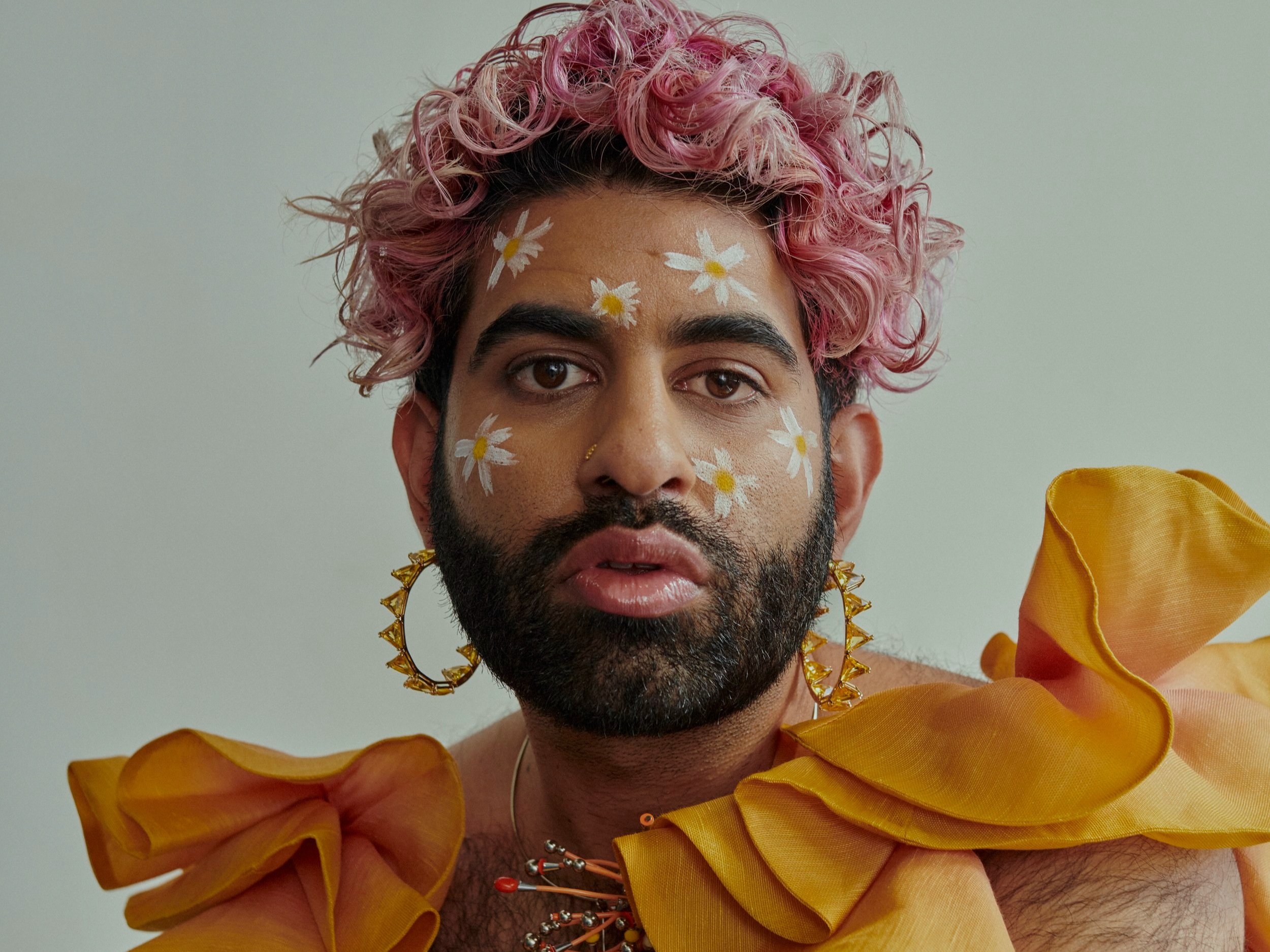What happened at the PuSh Festival? Some of its critics are now helping to unravel that question and rebuild
Maiko Yamamoto and Camyar Chaichian are two of the artists of colour who decided to take part in the fest’s organizational overhaul
Maiko Yamamoto and Camyar Chaichian say they have worked through their shock and now want to help.
Arts leaders who spoke out against actions at the PuSh International Performing Arts Festival this past summer have stepped in to help unravel what happened and rebuild the company from the inside out.
Theatre Replacement co-artistic director Maiko Yamamoto and theatre artist, educator, and consultant Camyar Chaichian are just two of the local players who accepted advisory roles. They and other artists of colour are lending their expertise to restructure the fest--which recently announced it will go ahead with live programming January 26 to February 7--to be more diverse and inclusive.
Suffice it to say their approach has not been to point fingers, or to call for more heads to roll.
“I was coming into it with this notion of ‘Let’s help this organization get to its next level and get through this really unfortunate situation,’” Chaichian tells Stir. “Let’s not pile on and contribute to its demise.”
When controversy erupted at the PuSh fest in early summer, it caught them and others with close ties to the renowned midwinter multidisciplinary fest by surprise.
After COVID-19 lockdown hit, the organization faced a deficit and decided to cut the jobs of two high-ranking women of Asian descent--artistic associate director Joyce Rosario and audience services manager Janelle Wong-Moon. Set against a bigger arts-community and societal conversation about systemic racism, the cuts prompted an outcry from local theatre artists who saw it as a backward step for diversity. Then, PuSh’s board reacted to the objections on social media and in formal letters by announcing its new white male artistic director Franco Boni was “no longer employed”. The criticism only worsened, with some saying Boni, the former head of Toronto’s Theatre Centre, had been a long-time advocate for inclusion.
“I was shocked, and I examined my shock and I just thought it was tonedeaf,” Chaichian recalls. “It was just so strange to see that from an organization that I know has a lot of great brains working on it and has a great track record of communication.”
Yamamoto, whose company has had a long association with the fest that helped catapult Theatre Replacement’s international touring, expresses a similar surprise.
“It was just a huge shock and disappointment at what was happening, and asking ‘How could this be happening to our beloved festival?’” she recounts in a separate interview. “Outwardly, PuSh is so necessary: it’s the art I want to see and that I want to dialogue about and that I want to make. So it was really hard and heartbreaking.”
Across Vancouver’s cultural scene--not to mention the national and international communities PuSh had ties to--people were left wondering, what just happened? The survival of one of the city’s most celebrated winter festivals was at stake after almost 17 years. Two directors from the board resigned. An event that had opened Vancouver to the world of cutting-edge multidisciplinary work, and that had helped take artists from here to an international platform, was--seemingly suddenly--on the verge of collapse.
But six months later, PuSh has engaged Yamamoto, Chaichian, and others in a big organizational review, led by an advisory group guided by facilitator Nicki Kahnamoui. (You can see more details about PuSH’s organizational review on its website.) Chaichian, the Neworld Theatre founder who has worked not just as a director, actor, and producer but in community cultural management, has been sitting in that advisory group. So has Yamamoto, who will also curate the just-announced PuSh Rally with fellow Siminovich Prize-winning theatre artist Marcus Youssef during the fest; it’s to replace the former PuSh Assembly symposium.
Both artists of colour with longstanding work in conversations about diversity issues in theatre, Yamamoto and Chaichian emphasized that the advisory process is still far from over, that it has sometimes been gruelling, and that they realize there will be dissenting voices in the community.
“The backlash to letting two women of colour go from the fest was huge. That's going to take a long time to reflect on,” says Yamamoto, who adds she’s stepped up “not just to save the festival, this huge cultural asset, but also to look for the answer to what happened. It’s really searching for accountability too.”
Seeing the need for anything but “swift action”
Chaichian says he went through a long thought process when PuSh asked him to help on the advisory group.
“For me a key question when I was deciding whether to get involved was ‘Does the community have a right to dictate what an organization like PuSh is doing?’” says Chaichian (better known by his stage name Camyar Chai). What answered that was talking to people in the community about the ownership they felt for the fest. Cofounded by Norman Armour and Katrina Dunn in 2003, it grew to stage work by local troupes like Electric Company Theatre, Theatre Replacement, Neworld Theatre, and Theatre Conspiracy alongside that of companies from around the globe.
Theatre Replacement has evolved with the PuSh International Performing Arts Festival, presenting past works like 2017’s Town Choir.
Chaichian says he was also heartened by the fact that PuSh had brought on Kahnamoui, of the not-for-profit leadership consultants Vantage Point.
“I got a couple private messages about being on the advisory group--like ‘swift action needs to happen.’ No,” Chaichian asserts. “We need to take our time with this stuff and to take a deep breath and hear each other out. That’s not going to happen in a Tweet or Facebook post….This is not a Pollyanna point of view. But if we’re talking about true, true dialogue, then it has to take time and has to be taken out of the instant-gratification realm of social media.”
In other words, Chaichian did not come in with a mandate of ousting the people responsible for whatever mistakes had been made. “Either you believe in summarily getting rid of someone or you don't,” he says. “I'm not going to go in and say, ‘And now these people need to go because of what happened!’ I'm coming from a place of ‘Let’s stop the cycle that could get even more out of control.’”
Chaichian sees the main problem at PuSh as a systemic and structural one endemic to nonprofit arts groups.
Arts organizations, as nonprofits, are largely run by volunteer boards. And through Chaichian’s work, he’s seen how hard it can be for those volunteers, often “working off the side of their desk or attending four meetings a year”, to build capacity and sustainability.
“You've been relying on the blood, sweat, and tears of volunteers and then you get surprised when a crisis happens and you don't know how to handle it-- because everyone's been reactive instead of proactive,” Chaichian explains.
Chaichian went into the advisory process with compassion.
“Some people rightly or wrongly wanted to take it out on the board,” he says. “But let’s first step back and look at it: even the best people find it very, very challenging to operate with the way our not-for-profit board systems are set up. It’s an antiquated model and a lot of people are working really, really hard to modernize it--and it's not gonna happen over night.”
Part of the challenge is founding boards being able to build strong succession plans. But issues go beyond those boards to funding: “It’s really hard to stay on top of evolving the systems to match the programming. Those things take time and money and they’re usually the things that have to get cut when the choice is that or not putting on a festival.
“It’s also remembering the reason a bunch of smart people made a bad decision is not because of one moment in time,” Chaichian continues. “It’s because of one thing being built on another and another, then a crisis hits and it blows up.”
The process may also dictate what new administrative structure the organization develops; for now, Boni’s position is unfilled, and a reduced administration, under managing director Jason Dubois, will run the new year’s fest.
Deep discussions on systemic racism
Discussions at the advisory group have gone deeper than just structural ones. The group has committed to “JEDI values”: justice, equity, decolonization, and inclusion. And Yamamoto says the conversations around diversity and systemic racism she and the others have been having with the people at PuSh have been some of the most intense and open she’s had in her career.
“It’s hard to hold the space for that; it’s really personal for me, but it’s really important work to be doing now,” she says, and adds with a laugh: “I put my head down at the end of the day and think ‘I need to recover.’ But I’m pretty good at processing it.”
Chaichian summarizes the discussions this way: “There’s a difference between not being a racist and actually doing work that's anti-racist. That’s the big step for people to take before we can move forward.”
He explains that this approach means people tend not to get defensive. The discussion can move beyond whether someone is personally racist or not and into active change in an organization.
It’s a topic that the local theatre community has been grappling with for years: as far back as 2015, an open letter to the Jessie Richardson Theatre Awards from an ad hoc group of theatre-makers criticized the lack of diversity in its juries and prize-winners. But the murder of George Floyd and the ensuing calls for BIPOC rights have brought the issue to the forefront.
The public reckoning has hit numerous local art groups: among them, TheatreSports pledged publicly to improve diversity after being called out by two performers of colour, and Carousel Theatre for Young People brought in an outside consultant to rebuild its organization after parting ways with its artistic and managing director. Chaichian says still other arts organizations have been wrestling with the issue in private.
“That’s a conversation point that is ongoing that we need to keep hashing through as a community, and it is at the centre of the work we’re doing as an advisory committee,” he says. “For instance, PuSh has generally, if you look at the programming, been quite diverse and cultures have been represented….The question that’s come up is, ‘Is our programming reflective of how we run our office, how we interact with each other day to day?’ And what's becoming evident is it has to be holistic.
“If you’re doing it the other way, where it’s not authentic, then it does have the danger of being tokenistic,” Chaichian emphasizes. “I can tell you as someone who's been there back in my acting days, my biggest fear was to get a job because somebody thinks there should be more diversity onstage. I just wanted that job because I wanted to be recognized as a good actor. And that is simultaneous to understanding I was restricted from getting certain jobs because of the way I look.”
New PuSh Rally to “reassemble, repair, and reunite”
Although PuSh hasn’t announced its lineup of shows or venues yet, the conversation around inclusion and systemic racism is a priority in programming the industry-oriented PuSh Rally, co-curator Yamamoto says. It even has “Reassemble, Repair, Reunite” as its motto. The online series of artist encounters, conversations, and international presentations is meant to continue the process PuSh has underway.
“We really found it important to call it something new. The PuSh Assembly was associated with Joyce Rosario and we wanted to step away from calling it something with that attachment out of respect,” Yamamoto explains. “The word rally came from this idea of rallying together to learn and think and move forward. That was something we really grabbed onto: it’s political, fighting for a cause; or it’s mustering together after a defeat.”
She adds that she and co-curator Marcus Youssef want to address the issues PuSh has been grappling with from a broader global perspective. Expect panel discussions on race and equity.
“It will also be about us as a community of artists and how we've not been able to do what we do,” she adds, referring to the pandemic. “There’s lots of grief in the community.
“We've had so many tours postponed, and when we speak to my international colleagues it’s happening to them too.”
Yamamoto feels optimistic about pulling through this moment of questioning and rebuilding.
“There’s still lots of work to be done, but to me, it’s important to remember what an important cultural institution PuSh is,” she says. “I can't imagine what the city would be without it. So I feel like the Rally is also about community activation.”
Chaichian is optimistic, too; it showed when he wrote a blog on the PuSh site on September 30. “PuSh sailed into something it could have avoided. It’s far from being alone in doing so. It should not be alone in sinking,” he posted publicly. “In fact, these turning points in the life of a non-profit can make an organization even better, stronger, and more resilient.”
He added, “Shame on us, Vancouver, if we let this Festival die in a sea of anger.”
Like Yamamoto, he feels the remaining board members and staff are committed to change. But, as PuSh moves toward confirming its shows for early next year, he admits he has been hearing from artists who ask him whether they should take part in the festival.
“I will say to artists now: ‘Please do,’” Chaichian says. “It’s not the time to give up on it right now. We need to lift it up. And we need to lift each other up.”


